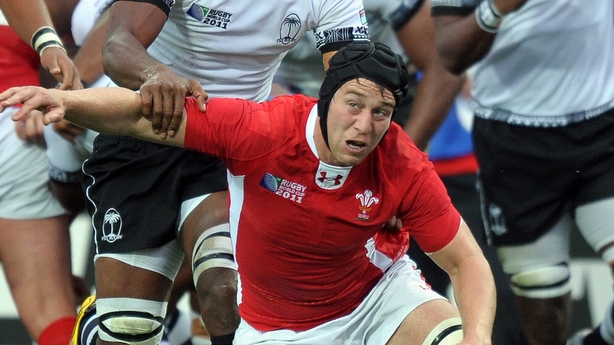An undisclosed number of former players are taking a case against the Irish Rugby Football Union in relation to serious brain injuries sustained during their playing careers.
The Irish Times is reporting that proceedings are expected to be issued before October, with the case being taken by Dublin-based solicitors Maguire McClaffey LLP, who specialise in litigation and personal injury law.
Manus McClafferty, a senior partner with the firm, confirmed that Irish players are involved but would not state how many.
"I won't do that. That’s unwise," he explained. "But I can tell you that proceedings are prepared and will, probably, be issued, I believe, by the end of September. I have them ready."
A statement to RTÉ Sport from players representative body Rugby Players Ireland said it is aware of reports, but refrained from commenting on an ongoing case.
"Whilst we are not in a position to comment on a legal matter, brain health remains a priority for the players' association," said CEO Simon Keogh.
In a statement this afternoon, the IRFU said: "Everyone in rugby has been moved by the personal accounts of former players as reported in the media.
"Player welfare is of paramount importance to the IRFU and we are constantly reviewing safety protocols for all players.
"Our approach, based on scientific evidence, involves a commitment to ongoing education, monitoring and application of safety protocols across the game, including proactively managing elite player game time with a focus on injury prevention and oversight.
"No proceedings have been served upon the IRFU to date."
The legal case against the governing body in Ireland comes alongside proceedings on behalf of a group of professional and semi-professional players against World Rugby, the Rugby Football Union and the Welsh Rugby Union. Members of the group have been diagnosed with early-onset dementia and other irreversible neurological impairments.
The claimants, who include former Wales captain Ryan Jones and England’s 2003 World Cup-winning hooker Steve Thompson, argue that the sport’s governing bodies were negligent in that they failed to take reasonable action to protect players from permanent injury caused by repetitive concussive and sub-concussive blows.
Jones, 41, a member of the British and Irish Lions squad on the 2005 tour of New Zealand, revealed his diagnosis with early-onset dementia and probable chronic traumatic encephalopathy (CTE) in an interview with The Sunday Times earlier this month.

He told the newspaper: "I feel like my world is falling apart.
"I am really scared because I’ve got three children and three step-children and I want to be a fantastic dad.
"I lived 15 years of my life like a superhero and I’m not. I don’t know what the future holds.
"I am a product of an environment that is all about process and human performance. I’m not able to perform like I could, and I just want to lead a happy, healthy, normal life.
"I feel that’s been taken away and there’s nothing I can do.
"I can’t train harder, I can’t play the referee, I don’t know what the rules of the game are anymore."
Former Ireland international Bernard Jackman said a UK law firm contacted him two years ago to see if he had any symptoms of brain injury.
"Luckily I don't," the RTÉ pundit revealed. But he said that every time he hears of these injuries it "hits home" what the future could look like for some players.
"I felt we weren't taking it seriously. Sometimes you could play with a simple concussion."
He said that while in recent years there has been a significant amount done to educate players about how dangerous concussion is and to make restrictions more stringent, there remained room for improvement.
"We see some high-profile incidents where concussed players don't leave the field quick enough and maybe have a second impact. That is the big worry from a medical point of view."
Medical experts say less contact in the sport would help reduce the risks, stating the facts are clear that multiple head blows will mean a higher risk of early dementia.
Professor Colin Doherty, consultant neurologist at St James's Hospital in Dublin, thinks players are balancing risks.
He said they see the benefits of playing in a sport like rugby, such as teamwork and companionship, and they outweigh the risk factors.
Regarding the concerns as a public health issue, Doherty was scathing in his appraisal of the role rugby officialdom have in implementing changes.
"There are ways of making these sports safer. We have to have a framework which takes into account public health concerns, and when are we going to do that?
"What is the public health response to this? Where is the multi-layered, multi-regional, social judicial response to this that takes it out of the hands of World Rugby?
"It is complete nonsense that the people who are tasked with fixing this are the people who are likely to lose the most if the game is disbanded or changed significantly."
Additional reporting PA

